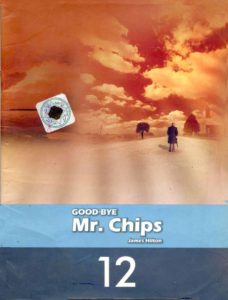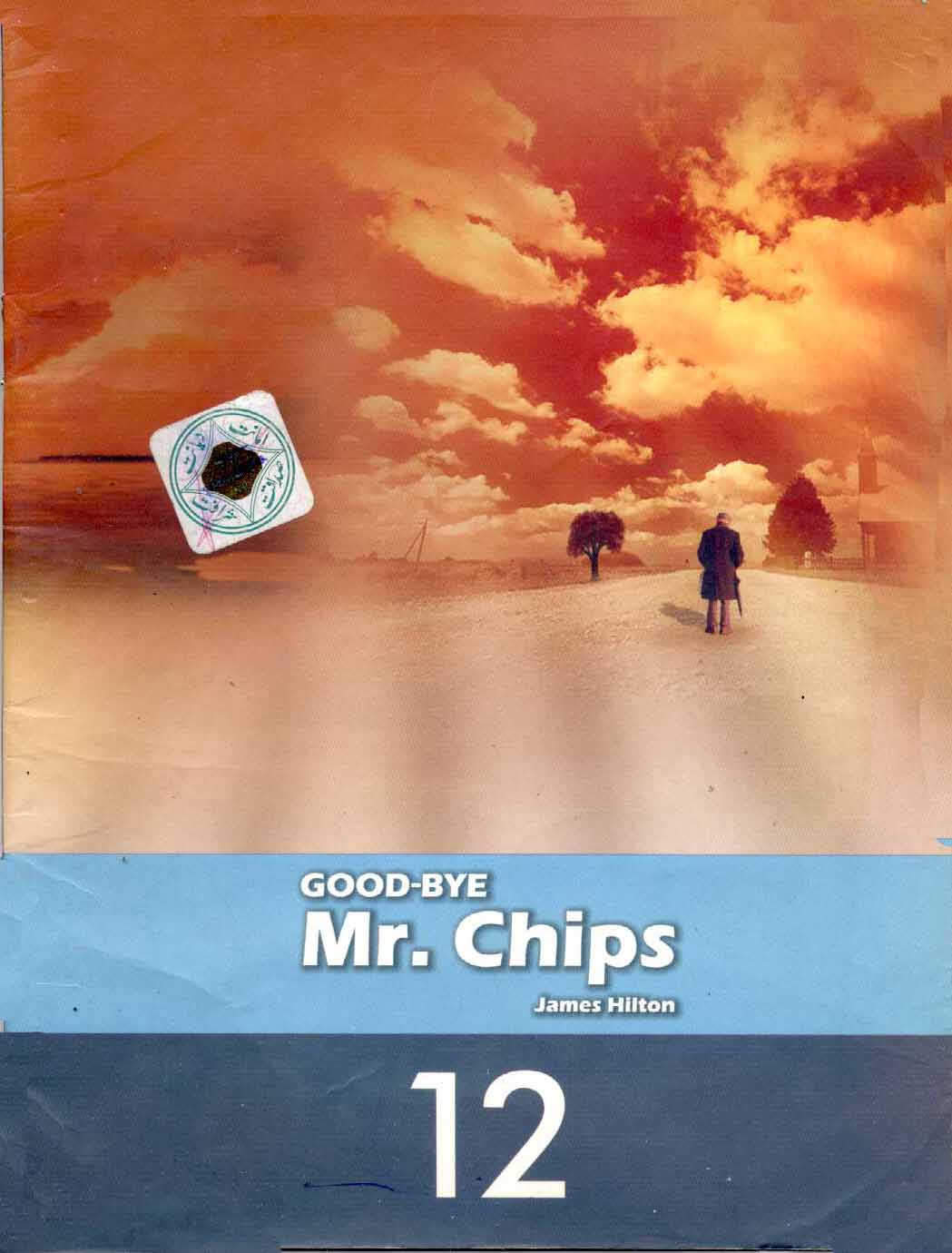 Goodbye, Mr. Chips is a novella about the life of a schoolteacher, Mr. Chipping, written by the English writer James Hilton and first published by Hodder & Stoughton in October 1934. Download free Book here.
Goodbye, Mr. Chips is a novella about the life of a schoolteacher, Mr. Chipping, written by the English writer James Hilton and first published by Hodder & Stoughton in October 1934. Download free Book here.
This novel is compulsory for intermediate second year (12th class). This book is by Punjab Text Book Board Lahore and published by Nazir Sons Publishers, Lahore.
When we were kids, our grandparents used to take us to Radio City Music Corridor for the motion picture and Christmas Exhibition consistently. The year I was 12, the film was a change of Lost Skyline – my most realistic memory from that night is my frightfulness when the lady all of a sudden matured in the wake of leaving Shangri-La. For reasons unknown, the motion picture is truly horrendous, while Forthcoming Capra’s 1937 unique is broadly thought to be a work of art. At any rate, I loved the film enough to peruse the book and furthermore Hilton’s other exemplary, Goodbye, Mr. Chips, and I cherished them both. As of late, our library got a reestablished version of the Capra film and we delighted in it altogether. So I backpedaled and rehash the books.
I accept most people know in any event the harsh layouts of the stories. In Lost Skyline, Hugh Conway, an English ambassador, is skyjacked and he and his voyaging associates wind up in the Himalayas. In the long run they are prompt the concealed Valley of the Blue Moon and the city of Shangri-La, where people don’t age and the forces that be are gathering the majority of the world’s information and most prominent fine arts, with the goal that it will be sheltered from the turbulent political tempests of the outside world. In the long run, the high lama uncovers to the negotiator that he has been assumed control initiative of Shangri-La and after an unsuccessful endeavor to leave (at the request of one of his kindred voyagers), Conway comes back to accept his ordained place in Shangri-La.
Farewell, Mr. Chips, then again, is around an offbeat however adorable English schoolmaster, Arthur Chipping (Mr. Chips). Apparently bound to be a lone wolf forever, he meets and weds a young lady who releases him up a considerable amount, before kicking the bucket in labor. Chips is allowed to sit unbothered, with the exception of that is for the succeeding ages of young men who go through Brookfield School. After decades at the school, he resigns, telling the amassed graduated class, “I have a huge number of appearances in my brain. … I recollect you as you may be. That is the point. In my mind you never develop old by any stretch of the imagination”, just to be gotten back to amid WWI, and soon thereafter he ends up acting dean. One of his obligations is to peruse the rundown of the school’s war dead; for every other person they are simply names, yet for Chips, each name has a face appended. After the War he retires, following 42 years showing Roman History and Latin at Brookfield.
At first glance, these two stories couldn’t be more extraordinary, however understanding them now I understand how comparable they really are. Shangri-La is a desert garden of civilization in a world that was after all between two World Wars. It is where the considerable accomplishments of our way of life will be protected, regardless of whether war devours whatever is left of the World, which for quite a bit of this Century appeared like a probability. Mr. Chips, in the meantime, is the living encapsulation of institutional memory. The classes of young men, the educators and directors, even the subjects and showing strategies, travel every which way, yet Chips has stayed all through. “Regardless he had those thoughts of nobility and liberality that a frenzied world was overlooking.” He epitomizes the pre-War world and its esteems. In his book Mr. Bligh’s Terrible Dialect, Greg Dening says that: “Foundations require memory. A memory makes point of reference and request.” In the very middle of an age that was seeing a free assault on the majority of the West’s organizations and qualities, Hilton made Shangri-La and Mr. Chips; both speak to the traditionalist perfect – giving a scaffold of memory to all that is lovely and great and not too bad in our past, keeping in mind that, in our enthusiasm to make a flawless world, we overlook the characteristics and achievements which handed down us the truly great world in which we live.
These books are brazenly wistful and I’m certain some would even discover them tasteless. Be that as it may, I adore them and I value the subtly non-political manner by which they make the most imperative of political focuses: even as we push ahead we should dependably save those things and thoughts of significant worth in our past.

good job.
Ñ the same time